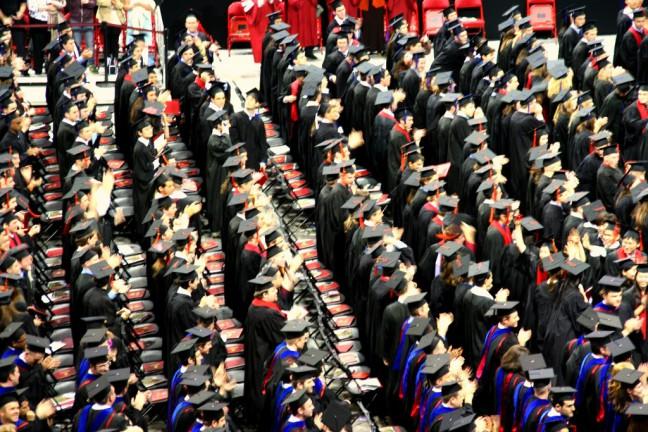A recent study suggests most professors in the United States earn PhD’s from a small slice of the nation’s elite universities. Although University of Wisconsin attracts a large number of faculty from such top tier institutions, the university says individual research is most important for vetting potential professors.
According to a study published in Science Advances, approximately 75 percent of tenured professors come from the top 15 percent of schools across the country.
The hiring process is left up to individual departments, UW Department of Economics chair Kenneth Hendricks said. For instance, in the economics department, at least six faculty have PhDs from Yale, three from Stanford, four from Massachusetts Institute of Technology and five from University of Chicago.
“We cast a net pretty widely in determining who is the best candidate for our department,” Hendricks said. “It’s all based on the work. We read their papers and that’s the basis on which we make our evaluations. The nameplate is not a significant factor.”
Hendricks said the department recently received 687 applications for an associate professor position. The committee invited 43 back for interviews in Boston, then selected 10 to visit UW and the economics faculty. He said the candidates came from a variety of schools ranging from Maryland to the top five universities, although they typically exclude outstanding candidates from top institutions and candidates with UW PhDs.
He said even among Harvard PhDs, UW would only be interested in interviewing a few of the top candidates from the year’s output.
David Bohnhoff, an engineering professor at UW, said his department does not usually turn away UW PhDs out of principle, but because there are no positions available for their specialty.
Caroline Levine, chair of the English department at UW said her department does have a high proportion of faculty from elite institutions. Levine, a graduate of a non-Ivy League School, said when hiring new faculty, they take program rigor into account, but more so look for those who make great contributions to the field.
“We in the department don’t spend much time thinking about where people get their degrees,” Levine said.
She said an occasional pattern is for UW to act as a stepping stone for faculty here to obtain positions in higher ranking institutions.
Bohnhoff said elite degree holders take a higher proportion of faculty positions because they bring in more research dollars and ideas for innovation. However, he said institution means little when making hiring decisions — their individual research matters more.
“The really good graduate students are the ones who have sought out the top performers in their field,” Bohnhoff said. “Those are the people who are always going to float to the top in a particular field, not necessarily at an Ivy League.”
He said research is often so specific that top-notch graduate students and faculty have positions at various institutions where UW searches for future hires.
As for UW PhDs, placement varies depending on department and individual aptitude. In the economics department, Hendricks said usually a couple of the best students will interview at the top 10 universities, although more end up in the top 30 institutions, or the government and private sector.














